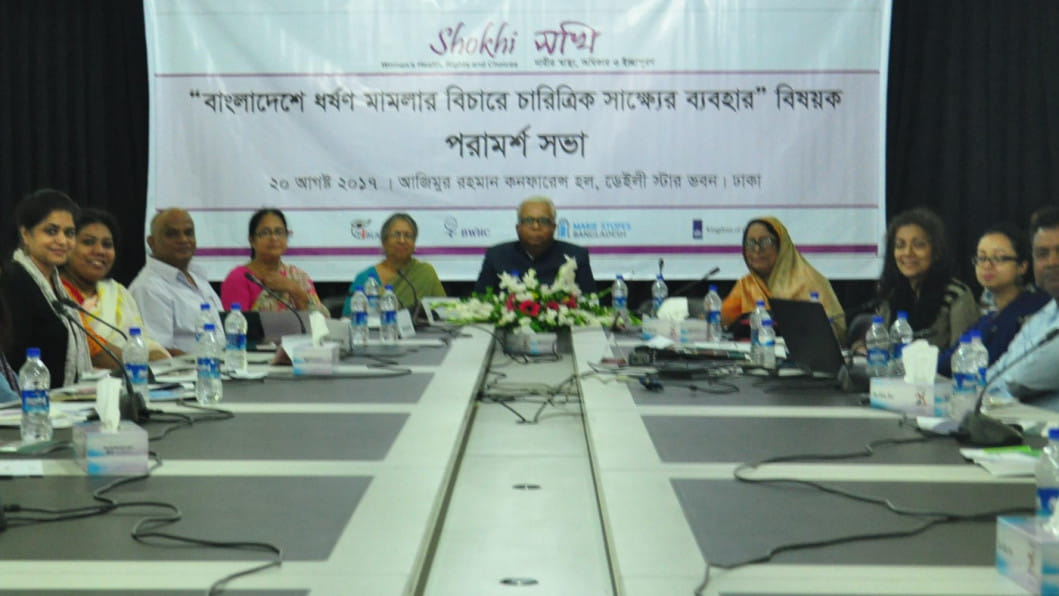Use of character evidence in rape trials

On 20 August, 2017 at Azimur Rahman Hall, The Daily Star Centre, Bangladesh Legal Aid and Services Trust (BLAST) with the support of SHOKHI project organised a consultation meeting on the use of character evidence in rape prosecutions in Bangladesh. The speakers unanimously agreed to the demand to repeal the discriminatory provision, Section 155(4) Evidence Act of 1872, and urged the government to take necessary initiative in this regard.
Section 155(4) provides that “[…] when a man is prosecuted for rape or an attempt to ravish, it may be shown that the prosecutrix was of generally immoral character.” Here prosecutrix is generally considered to be a female victim of a crime on whose behalf the State is prosecuting a suspect/accused.
Justice Nizamul Haque, Former Judge at the Appellate Division of the Supreme Court of Bangladesh, said that “We are all agreed on the fact that Section 155(4) should be repealed. The judges in court can play a vital role to protect a rape survivor from being asked humiliating questions during rape trials.”
While discussing about the way forward Nurunnahar Osmani, Member of the National Human Rights Commission-Bangladesh, opined that “The issue of consent should be the main concern in rape trials. Adducing character evidence in courts in such trials is completely irrelevant.”
Lutfa Begum, Former District Judge at the Nari O Shishu Nirjaton Domon Tribunal, observed that “Section 155(4) of Evidence Act is one of the main reasons why perpetrators of rape can evade justice. Questioning of past sexual history of the rape survivor cannot be relevant in determining whether the offence of rape has been committed.
Advocate Ali Asgar Swapan, Special Public Prosecutor at the Nari O Shishu Nirjaton Domon Tribunal-5, Dhaka, said in his speech that “The use of character evidence is visible in all violence against women related cases including dowry cases which hampers the course of justice.”
Fatama Sultana Suvra, Assistant Professor at the Department of Anthropology, Jagannath University, commented that “Rape laws in Bangladesh discriminates against women and the fact that a woman can be questioned about her character is a violation of her Constitutional rights as under our Constitution treats men and women as equal. Such laws are based on a colonial mindset that women cannot exercise her sexuality unless she is of immoral character.”
Dr. Dina M Siddiqi, Professor of Anthropology at BRAC University, emphasised on the necessity for a reform of the current legal definition of rape and the need for courts to take the issue of victim’s consent into consideration.
The event was chaired by Justice Nizamul Haque. The aims and objectives were set by Advocate Sultana Kamal, eminent human rights activist and former advisor of the caretaker government, and Barrister Sara Hossain, Honorary Executive Director of BLAST.
Barrister Nawmi Naz Chowdhury, Coordinator (Research and Documentation) at BLAST, presented a paper on the use of character evidence in rape prosecutions in Bangladesh along with the status of use of character evidence in other countries.
The event covered by Law Desk.

 For all latest news, follow The Daily Star's Google News channel.
For all latest news, follow The Daily Star's Google News channel. 



Comments